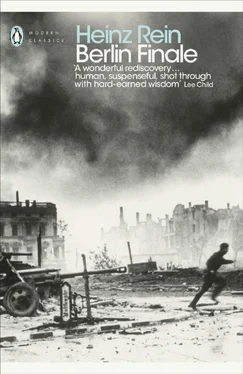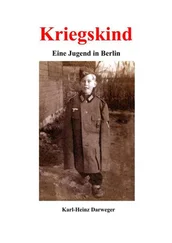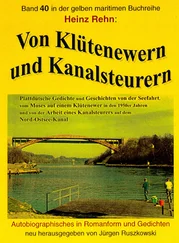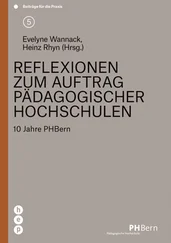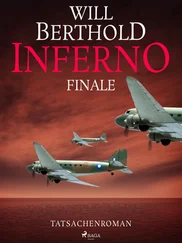The ministries have left Berlin, they have been ‘transferred’, or moved to ‘temporary quarters’, the offices on Wilhelmstrasse are being dismantled, freight trains are being loaded night and day with files, cabinets and boxes, but also with furniture, household effects and suitcases. Senior ministry and Party officials have fled, leaving only the so-called ‘intelligence centres’, but there are plans for them too, and the extensive ‘Thusnelda transport operation’ is already in progress, with the special trains ‘Adler’ and ‘Dohle’ in Lichterfelde West and Michendorf, and numerous private cars.
Beneath the roar of the air-raid sirens, the muses fall silent. In the brief intervals between power cuts and air-raid warnings, all that emerges from microphones and cinema soundtracks are the voices of the illegitimate sisters of those muses, although the heroic bass of Mars is drowned out by a hysterical descant of compulsory frivolity; the little troop that consists of Comrades , Kolberg , Hallgarten Reconnaissance Unit , Johanna the Black Hunter and The Great King stand lonely among the interminable armies of Young Hearts , A Happy House , My Colleague Will Be Right With You , The Ideal Husband , All Around Love , The Woman of My Dreams , It Started So Well , Long Live Love , The Honeymoon Hotel , The Greatest Love , The Man Who Was Sherlock Holmes , Women Make Better Diplomats , A Man for My Wife , Fritze Bollmann Wanted to Go Fishing , Love Letters , Easy Blood , Nights of Madness , Don’t Talk to Me About Love . The flagging thrust of Fridericus Rex and the Horst Wessel Song mix with the Königswalzer , the music of the weekly newscasts, the tormented laughter and the wailing sounds of the sirens mingle into a horrible cacophony.
In this city of ruins, whose body is burnt and broken, whose entrails are shredded and torn, people live pressed closely together, they lead a life more terrible and difficult than the lives of soldiers, devoted entirely to battle and danger. Beneath the constant threat – and it is no less of a threat – from explosions and fire, asphyxiation and entombment, the people of this city still lead a kind of private life, and carry the pitiful ballast of civilization around with them. They need to look after themselves and their families, they need to work and at every second they expect that they will have to interrupt whatever activities they happen to be engaged in, whether it be sleeping or making love, drilling or calculating, cooking or shaving, and devote themselves to a fate that gives them no chance of escape. They lead a nomadic, troglodytic life, they allow the seed of a neurosis that may well be incurable to grow within their children, and surrender them to illiteracy. They watch the substance of youth being consumed in labour camps and anti-aircraft batteries, and the sense of a meaningful, orderly life dying away while their children are raised as warlike nomads. They have already moved so far from their origins, they have allowed their humanity to wither and atrophy to such an extent that at last they are merely machines which react willingly to the gentlest pressure of a finger or a phrase. It is the phlegmatic quality of people who have become fatalistic, who have rid themselves entirely of their own will and stubbornly continue along the path on which they have embarked, impassively accepting orders and special assignments, and praising as heroism their inner and outer indifference, and as perseverance their readiness to suffer; they ceased long ago to be the ‘reckless race’ described by Goethe. Beneath the ashes of their numbed souls there still smoulders the hope of divine providence announced by the mouth of the Antichrist, that famous covenant with God to which Hitler and Goebbels, Fritzsche and Dittmar are now so keen to refer. They know that fate, as unstoppable as a flood from the Volga and the Atlantic Ocean, will not halt at the gates of their city, but no spark of revolutionary zeal comes alive within them, no unleashed rage bursts the chains of duty, no cry of despair stirs the pangs of conscience. The disasters that the British and American Air Forces are delivering so masterfully in the airspace above the city absorb all capacity for thought, they send their victims off in search of refuge, food and clothing, ration coupons, food cards and bomb-damage certificates. They leave those who have been spared busy with repairs, safeguarding their belongings and struggling to reach their workplaces. The forms of civilized life are shattered, apartments have turned into dark caves since the protecting shell surrounding the sensitive cortices of the city, the telephone and electric cables, the gas and water pipes and the sewerage system, is torn and frayed. The people of the city have returned to the pump, the stove and the tallow candle.
There is something frantic about their movements, about their language, any unusual sound that springs suddenly from the flowing monotony makes them flinch and listen excitedly. They have only one single topic of conversation: the situation in the air, whether the Reich is free of enemies, whether any bomber units have flown in, where they are headed, whether they are flying away again. Everyone who leaves his apartment says goodbye to his family like someone undertaking a long and difficult journey into the uncertainty of an unknown and dangerous country, everyone carries with him a suitcase, a rucksack, a full briefcase or a shoulder-bag, since the alarms often take them by surprise and force them to seek refuge somewhere far from home.
But it is not only the danger of war from the air that weighs down on the people, another menace has added to the weight of that burden: the front lines. Since the crossings of the Rhine in Remagen and Oppenheim, the Western Allies have reached the Elbe in a surprise incursion across western and central Germany, the Soviet armies have advanced as far as the Oder from the bridgeheads of Puławy, Warka and Baranów, through Poland and eastern Germany, but even though the western front is constantly shifting, Berlin has turned its face to the east, where the Soviet armies wait menacingly beyond the Oder.
It is the unease before the storm that lies over the city, an unease caused by the uncanny peace that spreads behind this last barrier in the east of the city, it is a restless peace, in which the railway trains and columns of motor cars from the Russian hinterland, from Chelyabinsk, from Sverdlovsk, from Gorky, from Magnitogorsk, from the collective farms of the Urals and Kuznetsk, advance towards the Oder. There is no one in the city who doesn’t know that each day the lull before the big storm is being used to put new gunners in the firing position, to drive new tanks into place, new aeroplanes are preparing to launch, new divisions are reaching their combat zones. Those far-off worlds, the Soviet Union and the United States, have come frighteningly close, the distance between the Stars and Stripes and the Red Flag has shortened to the distance between Frankfurt an der Oder and Magdeburg, and in the middle lies the besieged city which – once protected by the waters of the Volga and the English Channel – seemed an unattainable hinterland, the stump that is Berlin. The enemy armies are still beyond the big rivers that form the final obstacle, but they are already bringing in their fleets of planes and severing their last thin threads of life. They are preparing for the final onslaught, which could break out at any moment, across the Oder and the Elbe, rolling towards the city with the force of an avalanche.
The city’s stump has been turned into a makeshift fortress which is preparing to defend itself. Anti-tank ditches have been carved deep into the areas on the outskirts, communication trenches run diagonally across fields and allotments, one-man trenches have been dug into railway embankments, hillocks and patches of woodland, gun emplacements and anti-tank barriers block all access routes, immobilized tanks are buried at crossroads, flak artillery has been adapted to fire at ground-level targets, factories have downed tools, electricity, coal and fuel are now unavailable; the clerical and manual workers stay busy on the city’s edge, digging yet more trenches and lining up barricade after barricade. In the streets, in the restaurants and cinemas, in shelters and railway waiting rooms, patrols of the Wehrmacht, the SS, the Todt Organisation, the Gestapo and the police go in search of those unwilling to work and deserters: once again the Party has mobilized all means within its power to force each individual to do his part.
Читать дальше
